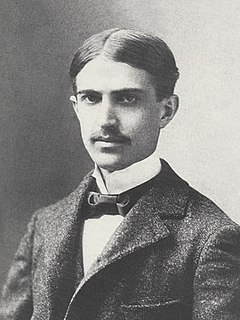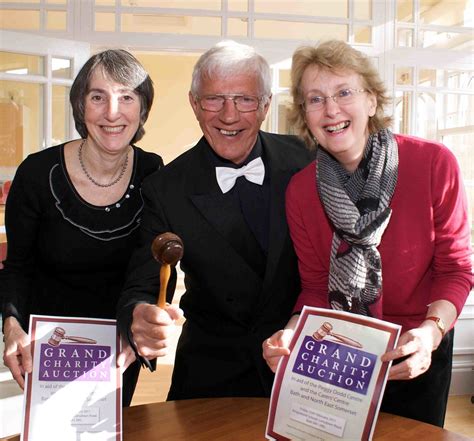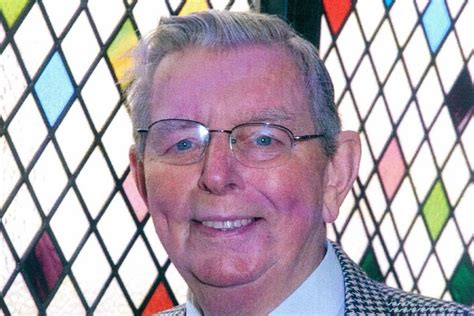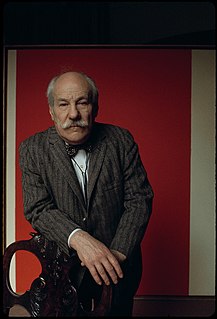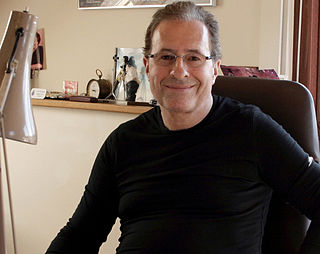Top 1200 Death Nature Quotes & Sayings - Page 2
Explore popular Death Nature quotes.
Last updated on December 3, 2024.
[There are, in us] possibilities that take our breath away, and show a world wider than either physics or philistine ethics can imagine. Here is a world in which all is well, in spite of certain forms of death, death of hope, death of strength, death of responsibility, of fear and wrong, death of everything that paganism, naturalism and legalism pin their trust on.
Nothing endures except change; nothing is constant except death. Every heartbeat wounds us, and life would be an eternal bleeding to death, were it not for literature. It grants us what nature does not: a golden time that doesn't rust, a springtime that never wilts, cloudless happiness and eternal youth. [my translation]
Nature is purposeless. Nature simply is. We may find nature beautiful or terrible, but those feelings are human constructions. Such utter and complete mindlessness is hard for us to accept. We feel such a strong connection to nature. But the relationship between nature and us is one-sided. There is no reciprocity. There is no mind on the other side of the wall.
To will the obligatory in relation to death is to fall in line with the major immutable cycles of Nature, especially human nature, and to understand that (whether or not there is a purpose or meaning to life or a life of the spirit beyond the life of the body) no one, absolutely no one, escapes being finite and mortal. And knowing this, and then to accept it, to will it, and not to be in an unnecessary state of angst or rebellion or terror over it.
Laughter. Yes, laughter is the Zen attitude towards death and towards life too, because life and death are not separate. Whatsoever is your attitude towards life will be your attitude towards death, because death comes as the ultimate flowering of life. Life exists for death. Life exists through death. Without death there will be no life at all. Death is not the end but the culmination, the crescendo. Death is not the enemy it is the friend. It makes life possible.
Again, if the world is destroyed, it must needs either be destroyed according to nature or against nature. Against nature is impossible, for that which is against nature is not stronger than nature. If according to nature, there must be another nature which changes the nature of the world: which does not appear.
Why would so many risk their reputations, families, careers—even presidential legacies—for something that runs against human nature? Were monogamy an ancient, evolved trait characteristic of our species, as the standard narrative insists, these ubiquitous transgressions would be infrequent and such horrible enforcement unnecessary. No creature needs to be threatened with death to act in accord with its own nature.
A highly developed moral nature joined to an undeveloped intellectual nature, an undeveloped artistic nature, and a very limited religious nature, is of necessity repulsive. It represents a bit of human nature a good bit, of course, but a bit only in disproportionate, unnatural and revolting prominence.
Every man that ever lived craved perfect happiness, the detective poignantly reflected. But how can we have it when we know we’re going to die? Each joy was clouded by the knowledge it would end. And so nature had implanted in us a desire for something unattainable? No. It couldn’t be. It makes no sense. Every other striving implanted by nature had a corresponding object that wasn’t a phantom. Why this exception? the detective reasoned. It was nature making hunger when there wasn’t any food. We continue. We go on. Thus death proved life.
By 'coming to terms with life' I mean: the reality of death has become a definite part of my life; my life has, so to speak, been extended by death, by my looking death in the eye and accepting it, by accepting destruction as part of life and no longer wasting my energies on fear of death or the refusal to acknowledge its inevitability. It sounds paradoxical: by excluding death from our life we cannot live a full life, and by admitting death into our life we enlarge and enrich it.
Choking with dry tears and raging, raging, raging at the absolute indifference of nature and the world to the death of love, the death of hope and the death of beauty, I remember sitting on the end of my bed, collecting these pills and capsules together and wondering why, why when I felt I had so much to offer, so much love, such outpourings of love and energy to spend on the world, I was incapable of being offered love, giving it or summoning the energy with which I knew I could transform myself and everything around me.
We tend to suffer from the illusion that we are capable of dying for a belief or theory. What Hagakure is insisting is that even in merciless death, a futile death that knows neither flower nor fruit has dignity as the death of a human being. If we value so highly the dignity of life, how can we not also value the dignity of death? No death may be called futile.
I think that the exactitude of the photograph has a sort of compelling nature based in its power to duplicate life. But to me the real power of photography is based in death: the fact that somehow it can enliven that which is not there in a kind of stultifying frightened way, because it seems to me that part of one's life is made up of a constant confrontation with one's own death.
As deaths have accumulated I have begun to think of life and death as a set of balance scales. When one is young, the scale is heavily tipped toward the living. With the first death, the first consciousness of death, the counter scale begins to fall. Death by death, the scales shift weight until what was unthinkable becomes merely a matter of gravity and the fall into death becomes an easy step.
We are left with nothing but death, the irreducible fact of our own mortality. Death after a long illness we can accept with resignation. Even accidental death we can ascribe to fate. But for a man to die of no apparent cause, for a man to die simply because he is a man, brings us so close to the invisible boundary between life and death that we no longer know which side we are on. Life becomes death, and it is as if this death has owned this life all along. Death without warning. Which is to say: life stops. And it can stop at any moment.
What is of the nature of spirit and soul must be gleaned from facts belonging to the spirit and soul; we shall then know that in the living thinking which is liberated from the will, a life-germ has been discerned which passes through the gate of death, goes through the spiritual world after death, and afterwards returns again to earthly life.
Nature is man's inorganic body -- that is to say, nature insofar as it is not the human body. Man lives from nature -- i.e., nature is his body -- and he must maintain a continuing dialogue with it is he is not to die. To say that man's physical and mental life is linked to nature simply means that nature is linked to itself, for man is a part of nature.
Why do you hunger for length of days? The point of life is to follow reason and the divine spirit and to accept whatever nature sends you. To live in this way is not to fear death, but to hold it in contempt. Death is only a thing of terror for those unable to live in the present. Pass on your way, then, with a smiling face, under the smile of him who bids you go
Don't depend on death to liberate you from your imperfections. You are exactly the same after death as you were before. Nothing changes; you only give up the body. If you are a thief or a liar or a cheater before death, you don't become an angel merely by dying. If such were possible, then let us all go and jump in the ocean now and become angels at once! Whatever you have made of yourself thus far, so will you be hereafter. And when you reincarnate, you will bring that same nature with you. To change, you have to make the effort. This world is the place to do it.
Both sex and death are eternal themes. You could make thousands of movies on this theme, and whether you have a human being who is painting, singing, making a film, writing, these are the themes that you will come back to and return to. If you don't have any of these artistic expressions, sex is one of the only gifts that nature gave you for free, so it is very important to celebrate it. And then, with death, we are condemned to that. This is absolutely present in our lives.
















